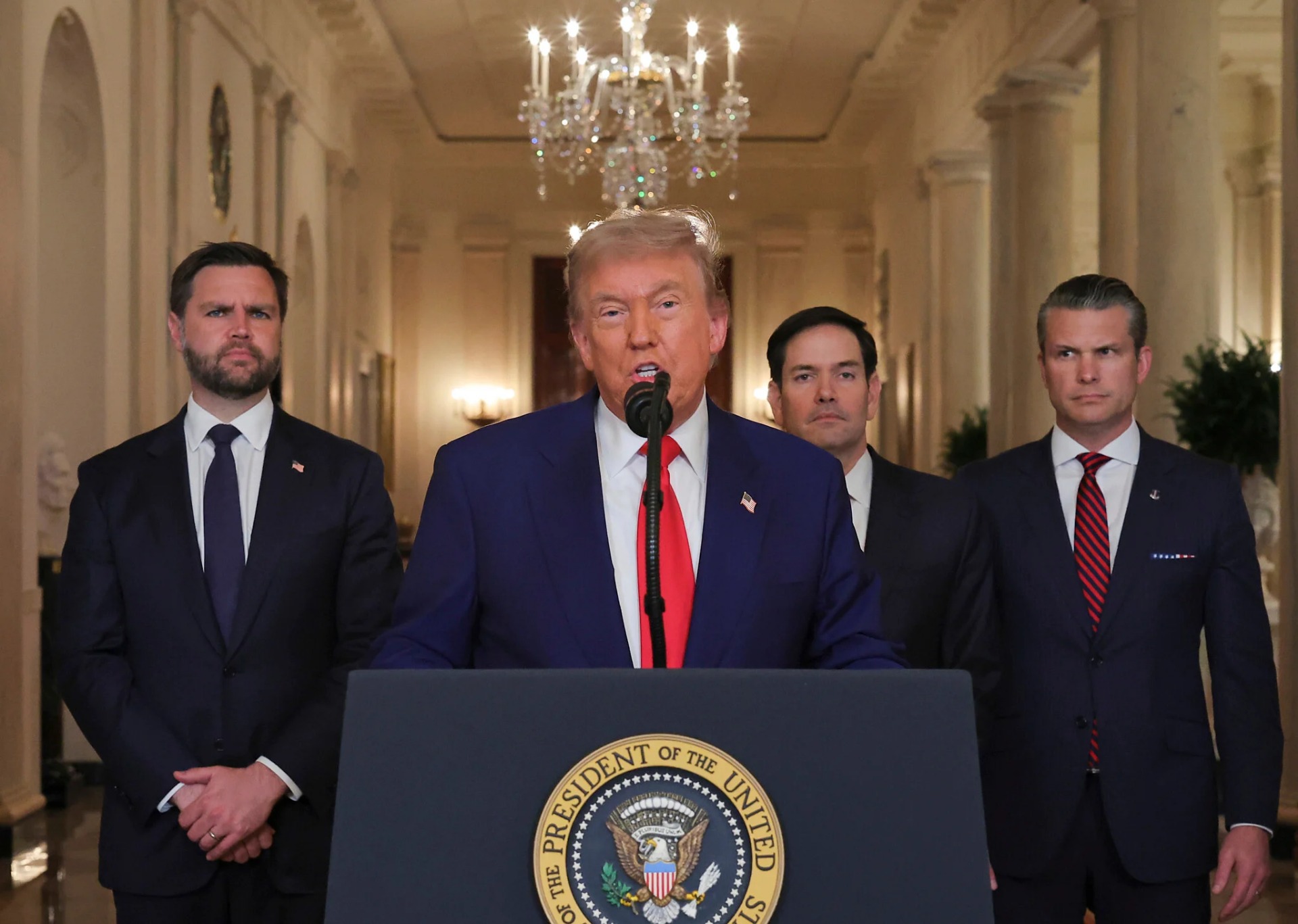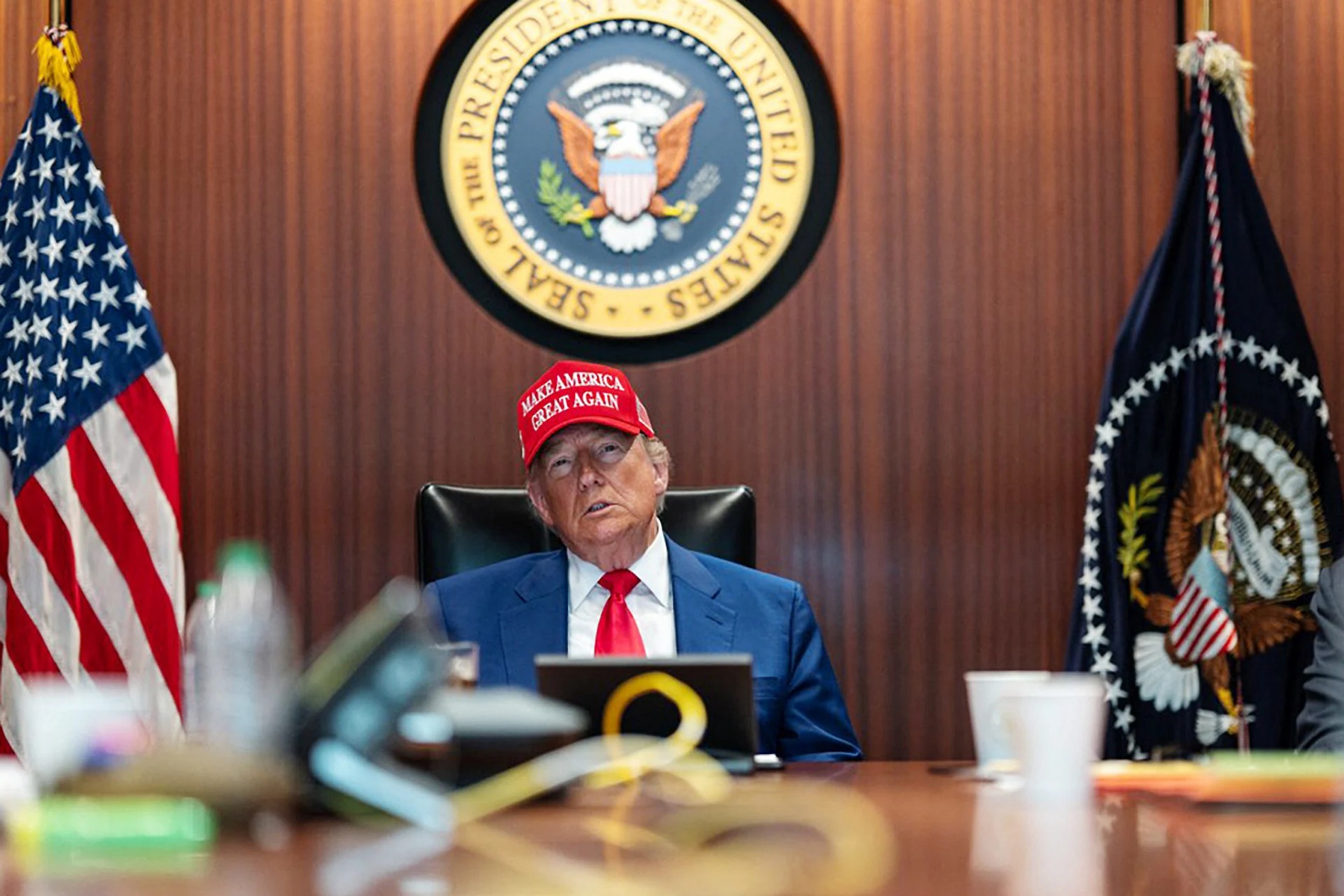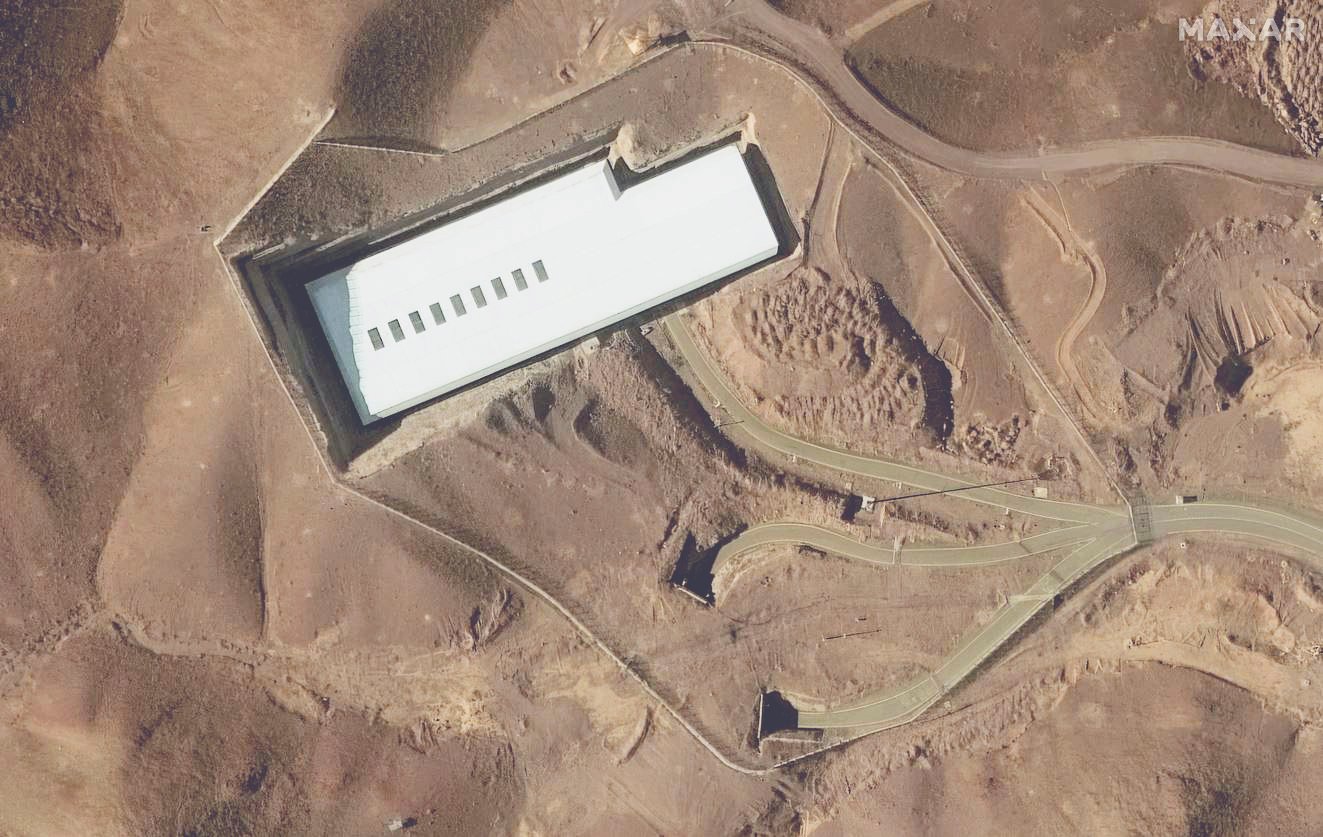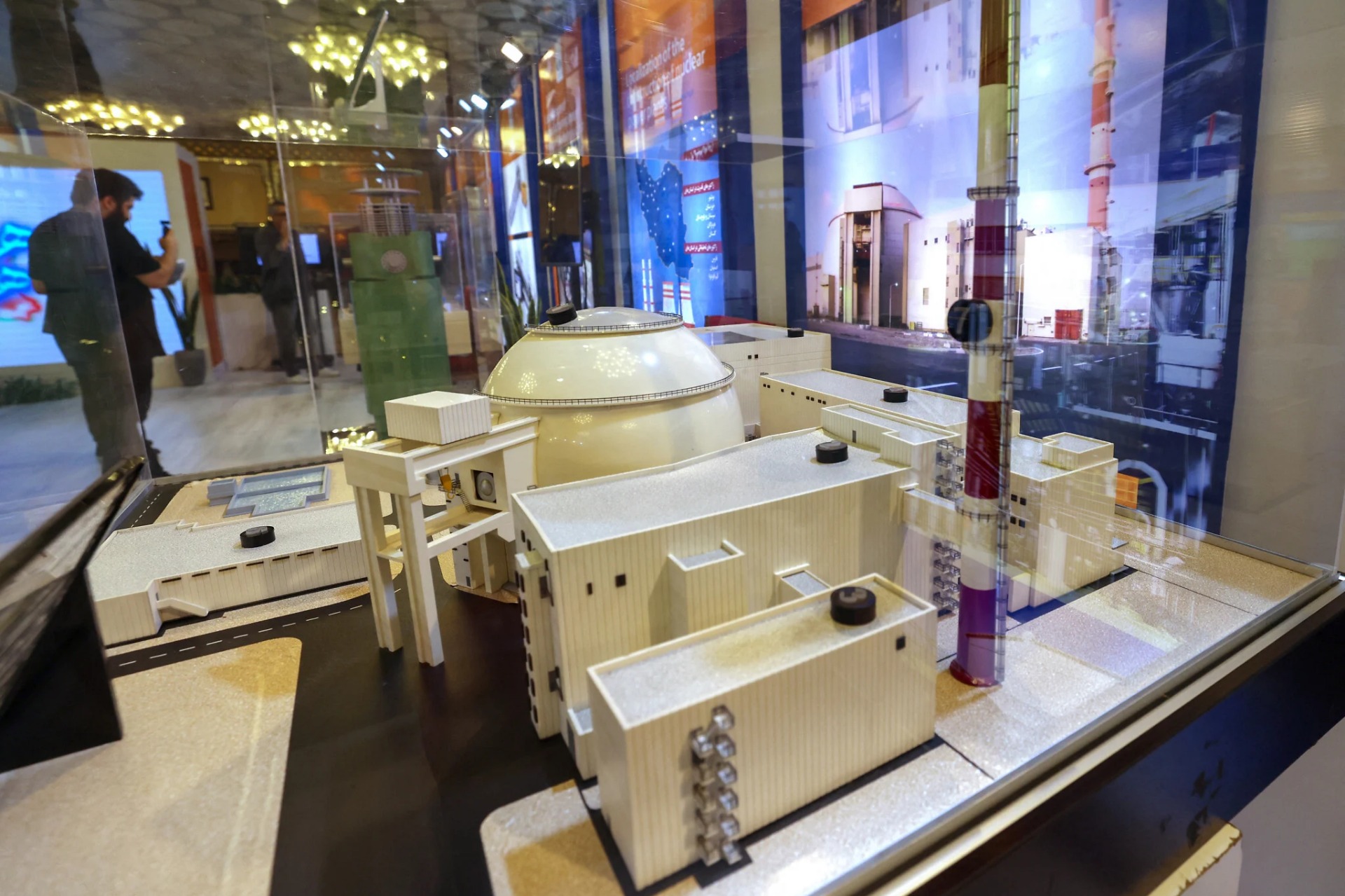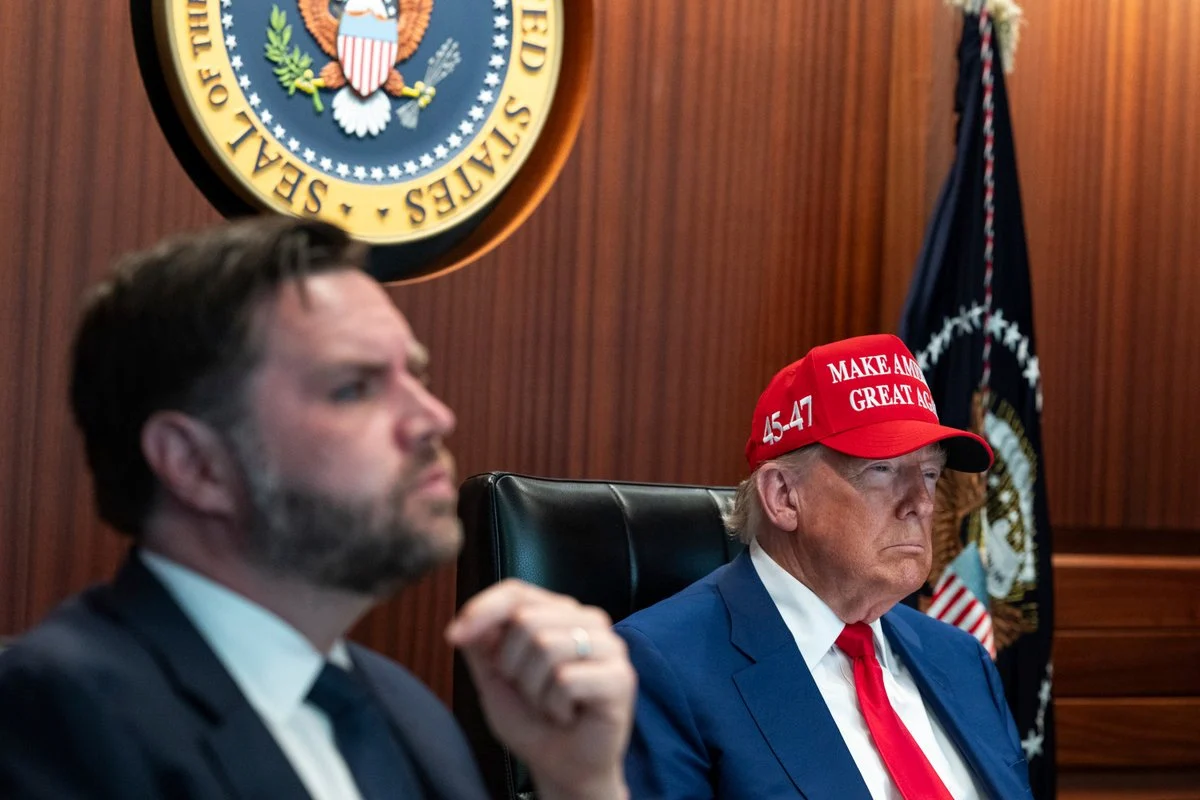US joins Israel in attacking Iran, strikes Fordow, Isfahan, Natanz sites
US President Donald Trump claimed that key enrichment facilities were "totally destroyed"; Fordo, an underground base, was attacked with bunker-busting bombs; and Natanz and Isfahan were attacked with underwater missiles.
The US carried out a "successful attack" on the Fordo, Natanz and Isfahan nuclear sites in Iran, US President Donald Trump announced early Sunday.
"A full payload of BOMBS was dropped on the primary site, Fordo," Trump wrote on Truth Social, referring to the difficult-to-destroy underground site, which has been characterized as integral to the Islamic Republic's rogue nuclear weapons program and the most impregnable of its nuclear facilities.
"All planes are now outside of Iran air space [and are]… safely on their way home," he wrote. "Congratulations to our great American Warriors. There is not another military in the World that could have done this." "NOW IS THE TIME FOR PEACE!" Trump added.
He then shared a post from an open-source intelligence account claiming that "Fordo is gone."
The president announced the US attack hours after he had indicated that the matter of US involvement in Israel's campaign against Iran's nuclear program was as yet undecided. Trump's decision to directly involve the US in the war came after more than a week of strikes by Israel that damaged Iran's nuclear facilities, eradicated the country's air defenses, and took out many of its military brass and top nuclear scientists. Iran, in retaliation, has launched dozens of ballistic missile barrages at Israel.
Trump provided more details about the US operation in a televised address from the White House at 10 p.m. local time, flanked by Vice President JD Vance, Secretary of State Marco Rubio and Defense Secretary Pete Hegseth.
"Our objective was the destruction of Iran's nuclear enrichment capacity and a stop to the nuclear threat posed by the world's number one state sponsor of terror," Trump said. "Tonight, I can report to the world that the strikes were a spectacular military success," he said. "Iran's key nuclear enrichment facilities have been completely and totally obliterated."
An unnamed Israeli official told Axios that the US used B-2 stealth bombers to attack the nuclear sites.
The advanced aircraft are known for being capable of delivering the huge 30,000-pound GBU-57 Massive Ordnance Penetrator. The "bunker-buster" bomb is thought to be capable of destroying the Fordo facility, which had remained untouched over the past eight days, even as Israel inflicted massive damage on the Natanz and Isfahan nuclear facilities.
The bomb is believed to be able to penetrate about 200 feet (61 meters) below the surface before exploding, and can be dropped one after another in succession, effectively drilling deeper and deeper with each successive blast. In total, six bunker buster bombs were used on the Fordo facility, according to Fox News' Sean Hannity, who said he had spoken to Trump. It was previously speculated that just two bunker-busters would be needed to destroy the site.
The Natanz and Isfahan sites were hit with 30 Tomahawk missiles launched by American submarines some 400 miles away, Hannity said.
Coordination with Israel
Trump spoke with Prime Minister Benjamin Netanyahu shortly after the US concluded its strikes, a White House official said, and Axios reported that the US gave Israel a heads-up before it set out on the strikes. This was corroborated by Israel's Channel 12 news, which reported that a small group of top Israeli ministers had been meeting from around 10 p.m. local time until shortly after Trump's announcement.
- In a video statement published shortly before Trump was due to deliver his address, Netanyahu thanked the US President for his decision to strike the Islamic Republic's nuclear sites.
"Congratulations, President Trump. Your bold decision to target Iran's nuclear facilities with the awesome and righteous might of the United States will change history," Netanyahu said.
"In Operation Rising Lion, Israel has done truly amazing things. But in tonight's action against Iran's nuclear facilities, America has been truly unsurpassed. It has done what no other country on earth could do," he said. "History will record that President Trump acted to deny the world's most dangerous regime, the world's most dangerous weapons."
"His leadership today has created a pivot of history that can help lead the Middle East and beyond to a future of prosperity and peace," added Netanyahu. "President Trump and I often say peace through strength. First comes strength, then comes peace. And tonight, President Trump and the United States acted with a lot of strength.
"President Trump, I thank you. The people of Israel thank you. The forces of civilization thank you," he concluded. "God bless America. God bless Israel and may God bless our unshakeable alliance, our unbreakable faith." In a second video, in Hebrew, Netanyahu said that his promise to destroy Iran's nuclear facilities had been "fulfilled."
Trump, in his own address, thanked and congratulated Netanyahu, saying the pair had "worked as a team — like perhaps no team has ever worked before." The US had sent mixed messages to Israel and had appeared undecided, right up until the strikes were announced, as to whether it would join the military campaign against Iran's nuclear facilities.
Trump had said on Thursday that he would decide whether the US would attack Iran within the next two weeks. This was said to have frustrated Israel, with officials reportedly telling the US that Jerusalem could act alone before the deadline was up.
Defiant Iran says work won't stop
Iran's state-run IRNA news agency confirmed the attack on the Fordo nuclear site, and acknowledged that separate strikes had targeted Natanz and Isfahan.
Quoting a statement from Iran's Qom province, IRNA said: "A few hours ago, when Qom air defenses were activated and hostile targets were identified, part of the Fordo nuclear site was attacked by enemies."
The news agency also quoted Akbar Salehi, Isfahan's deputy governor in charge of security affairs, as saying there had been attacks around the site. He did not elaborate. Confirming the strikes, Iran's atomic agency said that the country would carry on with its nuclear activities, despite the US attacks on key facilities.
"The Atomic Energy Organization of Iran assures the great nation of Iran that despite the evil plots of its enemies … it will not let the path of development of this national industry (nuclear), which is the result of the blood of nuclear martyrs, be stopped," the organization said in a statement published by state media. It also claimed the attacks on its nuclear sites violated international law, without clarifying the extent of the damage caused.
Iran state media later quoted the country's National Nuclear Safety System Center, which published a statement saying its radiation detectors had recorded no radioactive release after the strikes.
"There is no danger to the residents living around the aforementioned sites," the statement said. A commentator on Iran's IRIB state broadcaster declared following the strikes that every American citizen and soldier in the region was now a "legitimate target."
The broadcaster aired a map showing US bases in the region, with the commentator declaring, "You started it, and we'll finish it."
Bracing for response
The US appeared eager to avoid further escalation with Iran, and sought to communicate as much in a message reportedly sent to the Islamic Republic in the immediate aftermath of the strikes.
In his speech, Trump reiterated that Iran could still choose peace, but warned that there would be "tragedy" in store for it if it did not. "This cannot continue. There will be either peace or there will be tragedy for Iran far greater than we have witnessed over the last eight days," the US president said, before adding: "Remember, there are many targets left." "If peace does not come quickly, we will go after those other targets with precision, speed and skill — most of them can be taken out in a matter of minutes," he said.
In Israel, meanwhile, the IDF Home Front Command announced that it had updated civilian guidelines and, effective immediately, all gatherings across the country were banned, all schools would remain closed, and only essential businesses would be allowed to operate.
The new guidelines were a return to the strictest level of restrictions imposed at the start of the war with Iran. They had been relaxed in recent days, allowing workplaces to resume activities and permitting small gatherings. In what appeared to be an additional precaution, the Israel Airport Authority announced the closure of Israel's airspace. The land crossings into Egypt and Jordan remained open, the port authority said.
Israel says its sweeping assault, which began last Friday, on Iran's top military leaders, nuclear scientists, uranium enrichment sites, and ballistic missile program is necessary to prevent the Islamic Republic from realizing its avowed plan to destroy the Jewish state.
Iran has retaliated by launching over 470 ballistic missiles and around 1,000 drones at Israel. So far, Iran's missile attacks have killed 24 people and wounded thousands in Israel, according to health officials and hospitals. Some of the missiles have hit apartment buildings, causing heavy damage.


